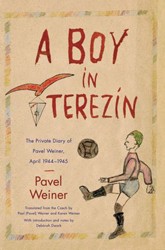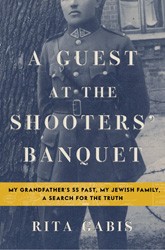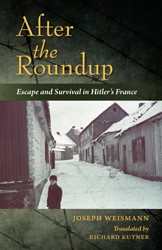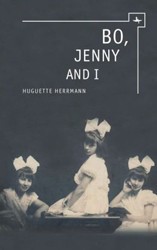“Don’t be afraid. Everything’s all right. I’m right here.”
Jona Oberski’s autobiographical novella opens with the voice of the young narrator’s mother, whose whispered assurances, wafting through the dark in a forebodingly unfamiliar place, immediately signal to both her son and the reader that everything is not all right; everything is not all right at all.
The boy’s mother continues to explain that they are there by mistake, a mistake so commonplace and reasonable that they can treat their stay as a short visit before Daddy — who was in the office when the boy and his mother were collected from their house — can bring them home. They do return, to a series of quiet vignettes of a child’s life in Amsterdam with World War II looming in the adult world beyond his periphery: a bedtime birthday celebration, a ferry ride, visits to hushed offices, antisemitic jeers from the grocer’s son, the yellow patch newly sewn to the boy’s coat — “Look, now you’ve got a pretty star, just like Daddy.”
When the boy’s family is roused by a soldier in the middle of the night, they comply with cool dignity, prepared to emigrate to Palestine from the colony of shacks to which they’ve been relocated — the same camp in which the boy and his mother endured the earlier “mistake.” Hearing their name called at an assembly following a nearby bombing, the family bundles what will fit of their possessions into their bedsheets and crowd into a train car, singing Hatikvah with their fellow passengers as the locomotive embarks.
But the next chapter opens in “the new camp,” not Palestine. The boy, smaller than most of the other children, ambles about Auschwitz as directed, “cleaning” the kitchen pots, following his mother on rare, risked visits to Daddy in the infirmary, brazenly accepting dares issued by the older children. Another train purportedly bound for Palestine leaves the boy, his mother, and Trude stranded on the tracks in unidentified woods, sipping on boiled nettles and blindly awaiting their fate as the war, somewhere beyond, comes to a head.
Oberski’s provokingly simple writing presents the banality of the Holocaust — not of the evil behind it, but of the trauma itself, of the matter-of-fact hope and despair of its most inconsequential victims. The structure captures the fragmented details of a four-year-old’s memory: a sequence of disparate scenes fit together in sudden breaks and splices, rather than the steady, continuous narration of an adult recollection. A compelling and personal reflection on Childhood follows the slender novel in an afterword by Jim Shepard, who presents his own close reading of the text, illuminating the devices and triggers that make Oberski’s work such a restrainedly profound read.
Related Content:
- Nat Bernstein: Photography and Remembrance
- Honey Cake by Joan Betty Stuchner, illustrated by Cynthia Nugent
- The Book of Aron by Jim Shepard
Nat Bernstein is the former Manager of Digital Content & Media, JBC Network Coordinator, and Contributing Editor at the Jewish Book Council and a graduate of Hampshire College.





